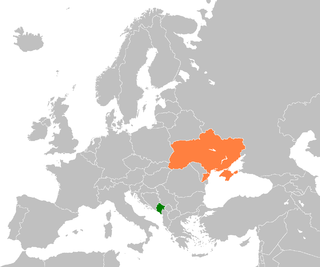
The State Space Agency of Ukraine is the Ukrainian government agency responsible for space policy and programs. Along with the Ukrainian Defense Industry and the Antonov Aeronautical Scientific-Technical Complex, it is a major state complex of the national defense industry of Ukraine. The agency was formed in 1992 based on the Soviet space program potential based in Ukraine following dissolution of the Soviet Union.
Accreditation is the independent, third-party evaluation of a conformity assessment body against recognised standards, conveying formal demonstration of its impartiality and competence to carry out specific conformity assessment tasks.
ISO/IEC 17025General requirements for the competence of testing and calibration laboratories is the main ISO standard used by testing and calibration laboratories. In most countries, ISO/IEC 17025 is the standard for which most labs must hold accreditation in order to be deemed technically competent. In many cases, suppliers and regulatory authorities will not accept test or calibration results from a lab that is not accredited. Originally known as ISO/IEC Guide 25, ISO/IEC 17025 was initially issued by the International Organization for Standardization in 1999. There are many commonalities with the ISO 9000 standard, but ISO/IEC 17025 is more specific in requirements for competence and applies directly to those organizations that produce testing and calibration results and is based on somewhat more technical principles. Laboratories use ISO/IEC 17025 to implement a quality system aimed at improving their ability to consistently produce valid results. It is also the basis for accreditation from an accreditation body.
The Council for Higher Education Accreditation (CHEA) is a United States organization of degree-granting colleges and universities. It identifies its purpose as providing national advocacy for self-regulation of academic quality through accreditation in order to certify the quality of higher education accrediting organizations, including regional, faith-based, private, career, and programmatic accrediting organizations.
Starting in September 2018, 12-year secondary education will replace 11-year which was mandatory before that. As a rule, schooling begins at the age of 6, unless your birthday is on or after September 1. In 2016/17 the number of students in primary and secondary school reached 3,846,000, in vocational school 285,800, and in higher education 1,586,700 students.

Formal Montenegro-Ukrainian relations began on June 15, 2006 when Ukraine recognized Montenegro, less than two weeks after the Parliament of Montenegro declared the independence of Montenegro from Serbia. Both countries established diplomatic relations on August 22, 2006. Ukraine has an embassy in Montenegro. In 2008, Montenegrin Government expressed intentions of opening embassy in Kyiv. Although economic ties are weak, Montenegro is a transit point for human trafficking between Ukraine and the rest of Europe.

V.I. Vernadsky Taurida National University (TNU) is a public, coeducational university currently located in Kyiv. The university was founded in Simferopol in 1918 with the active participation of the geologist Vladimir Vernadsky. The university now bears his name. The university has 16 departments and 20 academic institutes. The university has the status of national and is accredited to the fourth level by the Ministry of Education of Ukraine.
The National News Agency of Ukraine or Ukrinform is a state information and news agency of Ukraine. It was founded in 1918 during the Ukrainian War of Independence as the Bureau of Ukrainian Press (BUP). The first director of the agency was Dmytro Dontsov.

Alfred Nobel University, Ukraine is a higher educational institution with the IV level of accreditation.
Educational accreditation is a quality assurance process under which services and operations of educational institutions or programs are evaluated and verified by an external body to determine whether applicable and recognized standards are met. If standards are met, accredited status is granted by the appropriate agency.
Higher education accreditation is a type of quality assurance process under which services and operations of post-secondary educational institutions or programs are evaluated to determine if applicable standards are met. If standards are met, accredited status is granted by the agency.
The Ministry for Development of Economy and Trade is the main authority in the system of central government of Ukraine responsible for formation and realization of state economic and social development policies ; regulation of consumer prices; industrial, investment and trade economic policies; development of entrepreneurship; technical regulation and security of consumer rights; inter-agency coordination of economic and social cooperation of Ukraine with the European Union. In 2019-2020 it also encompassed functions of the Ministry of Agrarian Policy and Food.

The Ministry of Healthcare of Ukraine is the main healthcare body in the system of central government. It is based on former Ministries of Healthcare.
The Classic Private University is a university in Ukraine.
The Ukrainian Athletic Federation (UAF) - is the governing body for the sport of athletics in Ukraine. Current president is Ravil Safiullin.

Georgian nationality law is the law governing the acquisition, transmission and loss of Georgian citizenship.

The Foundation for International Business Administration Accreditation (FIBAA) is recognised accreditation body in all German speaking countries (Germany-Switzerland-Austria), FIBAA was founded in 2002 to accredit schools of business. Since the launch of the European Bologna Process, along with the transition to bachelor's and master's programs and the growing independence available to higher education institutions (HEIs) in designing their degree programs, the call for the HEIs to establish and advance sound and transparent quality assurance systems has grown continuously.
This page is based on this
Wikipedia article Text is available under the
CC BY-SA 4.0 license; additional terms may apply.
Images, videos and audio are available under their respective licenses.






